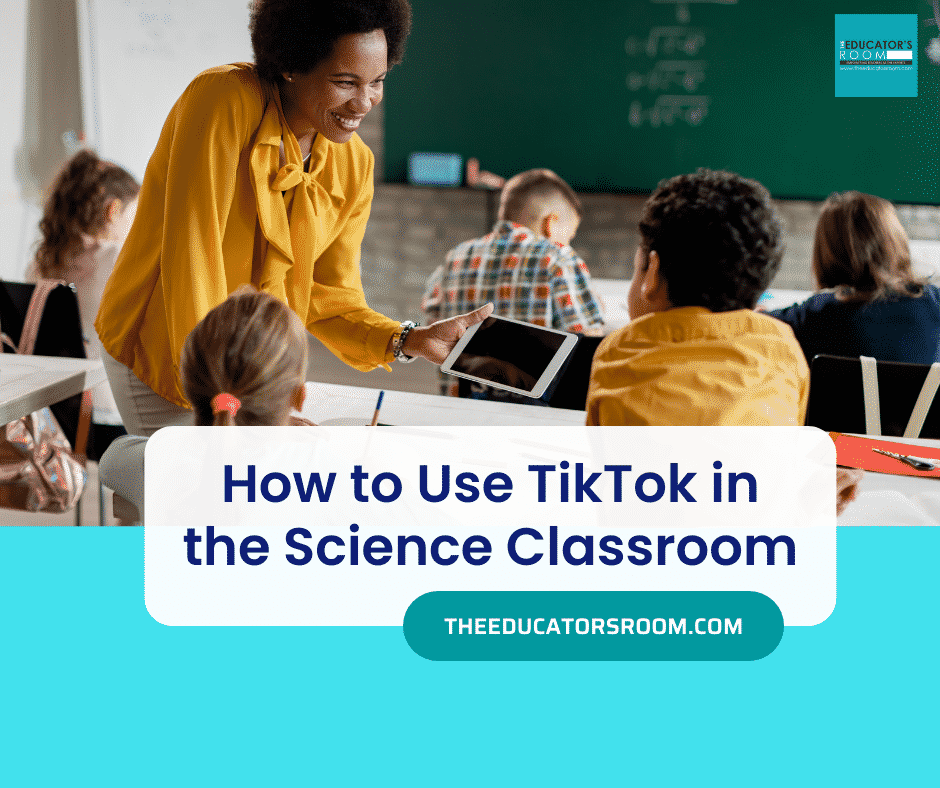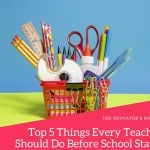“Ooh, Ms. Lane, I saw this TikTok Video that…”
One of my students excitedly said to me after class one day. My first thought was to listen but not take the topic seriously. I mean, after all, it was TikTok – a social media platform very effective at making students social, but not in an educational format. Anyone with an account can make a video about anything. So when she mentioned that ice cubes made using hot water freeze faster than those made with cold water, I started asking her if she thought what she saw was true. I was intrigued about her thought process and whether or not she could connect anything she had learned in class to the video.
TikTok: Challenge and Opportunity for Teachers
TikTok is one of the most popular social media platforms with 700 million active users per month, the largest demographic being young adolescents. TikTok inundates users with videos from the latest dance sequence to food recipes. Science experiments or life hacks that are explained using science are also popular videos on the platform. Although entertaining, adolescent TikTok viewers may begin to believe what they see (like a DIY IPhone blacklight that can identify fluids) and disregard any need to test the idea themselves.
Teachers may be hesitant to incorporate social media into their classroom. In Towards an Understanding of Social Media Use in the Classroom: a literature review, the authors discuss several of these reasons. They found that many teachers are concerned with their own lack of technical knowledge and believe social media to be disruptive and unaligned with curriculum goals. But teachers should see TikTok as an exciting tool, not a problem. According to a 2018 Pew Research Center study, 95% of 13 to 17 year olds have access to a smartphone. This generation of students have been exposed to technology since birth. Technology has continued to advance, especially social media, with more platforms available every year. TikTok videos are an excellent opportunity for teachers to infuse student interests, experiences and culture into learning. At the same time students will have the chance to enhance their scientific literacy skills.
Sparking a student’s curiosity to determine the validity of a video’s content in class may implore them to use these same skills outside of the classroom continually – an integral goal of science education. The Next Generation Science Standards (NGSS) 3-dimensions includes science and engineering practices all students are expected to accomplish. Planning and Carrying out Investigations and Engaging in Argument from Evidence are two practices that teachers can further develop with TikTok science videos.
How I Used TikTok in My Classroom
When I wanted to teach an eighth grade lesson on kinetic molecular theory, I decided to use a TikTok video mentioned by a student. The video claimed that hot water would freeze into an ice cube faster than cold water. We watched the short TikTok clip that has now garnered over 4 million views. I was excited to discover more videos where others repeated the experiment. I knew that I could use the repetition of results by others as a discussion about hypotheses and theories.
I wanted my students to use an instructional strategy often used in the science classroom known as CER. CER stands for Claim, Evidence, and Reasoning and enables students to practice their scientific argumentation skills. During this lesson I had students identify the claim of the TikTok users, the evidence necessary to support the claim and an explanation as to how the evidence supports the claim using their scientific knowledge (and notes). I also had students identify the independent and dependent variables along with experimental constants. I wanted to emphasize to students that before a scientist can draw conclusions, they must test their claim using a properly controlled experiment.
My students successfully identified the variables as well as controls that the TikTok user did not use. We discussed the issues surrounding an experiment that lacks adequate controls. As a result, students agreed on how to perform the investigation diffferently to obtain valid results. Students also identified evidence to support the claim that was missing from the video.
The reasoning section is always a little challenging for most students since they’re not used to writing about science. However, overall, they did a good job relating what should’ve happened according to phases of matter, phase changes, and the kinetic molecular theory. Using TikTok to launch our discussion made their ideas clearer. Lastly, I introduced them to a new concept that I had not planned to discuss: the Mpemba Effect. It was exciting to tell them that Erasto B. Mpemba discovered this phenomenon. Mpemba, a Tanzanian schoolboy, served to remind them that there is no age or education limit on discovery.
Other TikTok Tips for Teachers
Another way to use TikTok videos is as an engagement tool for a 5E Instructional Model. Students can explore the video’s claim by further dissecting the content of the video. This could include analyzing the experimental set-up or using an online simulation involving the components of the experiment. The teacher can introduce the scientific concept including vocabulary terms and examples to students. Next, students can experiment with the elaborate portion, which can be inquiry-based or follow a teacher-guided approach. Ultimately students can complete a lab report or mini-poster to help the teacher evaluate their understanding of the material. To assess students, teachers can also ask them to make their own TikTok video explaining the experiment!
Not sure how to find science-related videos on TikTok? A straightforward search using vocabulary terms from a particular unit will result in several videos that may be of use. Of course you will have to sift through them to find ones that are appropriate to use in the classroom. Perhaps you even plan to do an experiment in class and want to find a related video. You can use the name or keywords of the investigation to locate videos of users already performing the experiment.
Further Guidance
Further guidance should be provided to teachers in order for them to feel more comfortable and competent to use these tools in the classroom. However, at the same time, teachers should approach the use of social media with an open mind, similar to our desire for our students’ attitudes inside the classroom. After all, we are educating and developing the next generation of doctors, engineers and scientists. They will be charged with solving the world’s most challenging problems. This will require the use of innovative techniques and ideas. To prepare them for this work, teachers should embrace TikTok as an innovative teaching tool.
Editor’s Note: If you enjoyed this article, please become a Patreon supporter by clicking here.

Ariel B. Lane was an Atlanta Public Schools science educator for 10 years. She is a strong STEM advocate and believes in inspiring and preparing the next generation of scientists, engineers and doctors. After retiring from teaching, she created STEMucated, a business focused on helping Black and Brown students pursue STEM careers by equipping them with the skills and mindset necessary for college success. In addition to speaking engagements and facilitating workshops as a STEM coach, she is also a curriculum and assessment writer for various educational companies. She is the mother of one son, and enjoys thrifting and trying different cuisines in her spare time.







